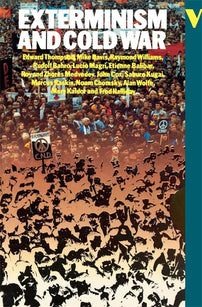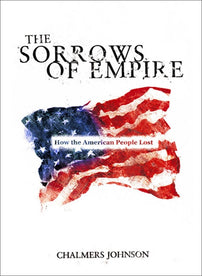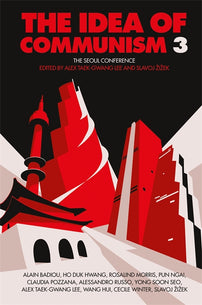Liberals Go Hardline on Korea: An interview with Christine Ahn
Peace activist Christine Ahn condemns the dangerous, opportunistic response to Trump's North Korea talks from American liberals.

First published at In These Times.
Poll after poll shows that the 51 million residents of South Korea overwhelmingly want an end to the 68-year Korean War — which the United States is still officially involved in. A recent survey found that 88.4 percent of South Koreans support the April 27 joint peace declaration by North Korean leader Kim Jong-un and his South Korean counterpart, Moon Jae-in. And 81 percent of South Koreans expressed optimism about the Trump-Kim summit.
Despite widespread concerns that U.S. President Donald Trump would torpedo an historic opportunity for peace — including through his repeated threats to annihilate the entire Korean Peninsula with nuclear weapons — this worst-case scenario has not yet come to pass. When North Korean leader Kim Jong-un met with Trump in Singapore on June 12 and etched out a four-point agreement, the reaction in South Korea was largely a sigh of relief. “Koreans see the Singapore summit not just as another sensational episode in the story of Donald Trump but as a step away from a sixty-eight-year-old unfinished war,” writes E. Tammy Kim for The New Yorker.
Yet, there is a yawning gap between the optimistic mood in South Korea and the response among liberal media circles in the United States, where many are reacting with a mix of sanctimony and scorn. On June 12, Kevin Drum published a piece in Mother Jones in which he accused Trump of “abandoning” South Korea and agreeing to a weak deal. Vox echoed this line with rebukes of a “shockingly weak” agreement that includes “huge concessions to Kim for little in return.” MSNBC’s Hallie Jackson accused Trump of complicity in the public relations makeover of a dictator. And popular host Rachel Maddow released an episode on June 12 arguing that Trump's pledge to halt war games in South Korea is a “giveaway to N. Korea” that “suits Putin's goals” — disregarding that robust social movements in South Korea have protested the U.S. military presence for decades.
These refrains were repeated by Democratic leaders, including Reps. Nancy Pelosi and Adam Schiff, who released a joint declaration ahead of the summit criticizing Trump from the right by accusing him of not being a tough enough negotiator. In this climate, the “liberal” line is virtually indistinguishable from the hand-wringing of officials from pro-war “think tanks” like the Center for Strategic and International Studies, which receives major funding from weapons manufacturers.
However, there were important exceptions. Sen. Bernie Sanders released a statement on June 12 praising the Singapore summit as “a positive step in de-escalating tensions between our countries, addressing the threat of North Korea’s nuclear weapons and moving toward a more peaceful future.”
For commentary on the U.S. political climate, In These Times spoke with Christine Ahn, a South Korea-born, Hawaii-based peace activist has been organizing to end the Korean war under the administrations of Trump, Barack Obama and George W. Bush (This is one of a series of interviews).
Ahn says she is frustrated and discouraged that many U.S. establishment liberals are deeply disconnected from the decades-long peace struggle led by South Koreans. Any peace deal must necessarily involve the United States, and unless U.S. progressives want to condemn the Korean people to another two to six years of military escalation, Trump will have to be involved in that process. Given Trump’s proven willingness to turn on a dime and engage in dangerous brinkmanship with North Korea, she argues, it is especially reckless for self-professed liberals to pressure the president to be more confrontational. “It is very dangerous to pressure Trump to be hardline,” says Ahn. “We have to put all of our efforts into ensuring this goes well and is not undermined.”
Can you tell me why you are frustrated with the response among liberals and the left in the United States to the Trump-Kim meeting in Singapore on June 12?
I was just in Washington, D.C. to help organize the Korea Peace Network Advocacy Day — about 100 activists from around the country came together to advocate for changing U.S. policy. It just happened to coincide with the June 12 summit in Singapore. We were so thrilled with the outcome of the meeting, even though it was thin on concrete action. This was the first time a North Korean and American leader sat down and shook hands and declared a new era for U.S.-DPRK relations.
I was incredibly frustrated by going around the capitol yesterday talking to the offices of members of Congress and also the quick knee-jerk reaction from liberals and left. People said, “How could we support engagement and diplomacy — this amounts to approving Donald Trump.” I was on the Joy-Ann Reid show, and the whole framing was about how Trump just met with the G7 and trashed France and other allies, and now he was going to North Korea to meet with a dictator.
Can we stay focused on how this is an incredible moment for the Korean people? This is about ending a seven-decade war with a country the United States has been at war with. The United States has been an obstacle to peace for Korea and was responsible for dividing the peninsula. That people in the United States don’t understand this is a sign that the Korean-American progressive community has failed to get nuanced perspective out there that ties the situation on the Korean peninsula with U.S. complicity. It’s so frustrating.
What’s the reaction in Korea to the meeting and to the peace process overall?
Eighty-eight percent of South Koreans support the recent peace declaration between North and South Korea which says we've ended the Korean War and we're starting a new era. I just came back from South Korea where women were saying, “Could you please tell the American people and international community that we want peace. Please could you pressure your government and silence the hardliners who are trying to derail this process for us?”
Isn't that reason enough to support the peace process? We've allowed partisan politics to get in the way. Democrats don't want to give a bone to Trump because it might impact the midterm elections. That's just killing me.
Given how volatile and dangerous Trump is, it seems to me that if you don’t trust him, you should do everything you can to make sure that he doesn’t derail the peace process. This is the same person who casually threatened to annihilate the entire Korean peninsula with nuclear weapons, yet now some Democrats are pressuring him from the right. Do you think this is dangerous?
It is very dangerous to pressure Trump to be hardline. We have to put all of our efforts into ensuring this goes well and is not undermined. Look who's in Trump’s cabinet: John Bolton, Mike Pompeo, and tomorrow is the confirmation meeting for Harry Harris, the former head of Pacific Command — a military man with a hardline position against China and North Korea, now likely the new ambassador to South Korea.
If things don't go well, we are in an incredibly dangerous situation. We saw that Lindsey Graham ask the seven Democratic senators to join him in authorizing the use of military force against North Korea if this process does not succeeed.
Talking with various members of Congress on the Hill, I got the message that they oppose this but they don’t have any path to success — and they oppose this because they don’t trust Trump. There’s this trope that we don’t engage with dictators. Really — we don’t engage with oppressive regimes? What about Saudi Arabia and Israel? The hypocrisy is just beyond the pale.
Democrats are attacking Trump from the right and sticking to this hard line of no dialogue, no engagement. This is the same line that was used against the Iran Deal. When I went to meet with Nancy Pelosi's office, I felt like I was dealing with the Obama administration. They had this line of, “We're not going to engage until there's complete, verifiable, irreversible denuclearization.” That approach of strategic patience got us nowhere except a nuclear armed North Korea.
The glimmer of hope is that some lawmakers put out measured statements, including Bernie Sanders.
Can you talk about the long struggle for peace in Korea?
For years, organizers have faced repression in South Korea, where they didn’t have the first democratic elections until 1987. The democratic uprising in Gwangju was crushed by U.S.-backed dictators and generals. We know from Tim Shorrock's investigative journalism that the United States gave the order to send paramilitary troops from the demilitarized zone to Gwangju to quash the democratic uprising led by students and ordinary people.
People in the United States have no idea of the kind of gross role that the United States has played maintaining hegemony in the region or the Korean Peninsula. The Cold War and McCarthyism first landed and proceeded on the Korean Peninsula, and it has never ended because the war has never ended.
In organizing the DMZ crossing in 2015, one of the largest South Korean left-liberal women's associations didn't feel they could come out and be with us because of the repression under Park Geun-hye. Only a handful of the women's groups had the courage.
Can you explain what’s at stake and why the United States has the power to impact the Korean peace process?
The last time there was a sunshine era, progress between North and South Korea was greatly limited and impacted by U.S.-DPRK relations. In 1998, Kim Dae-jung took office in South Korea and set off to pursue the sunshine policy of engagement with North Korean. In 2000, he signed the historic June 15 agreement with Kim Jong-il and set out to begin the process of reconciliation. This included three major components: family reunion, civil society engagement, and economic exchanges. When George W. Bush was elected, Kim Dae-jung asked for U.S. support. Instead, he got the door slammed on him. Soon after, North Korea landed on George W. Bush’s axis of evil. Instead of trying to improve relations with North Korea, South Korea was trying to stop the United States from going to war with North Korea.
It is a huge obstacle to peace if the United States is at war with North Korea because the United States and South Korea have a mutual defense treaty where the US has wartime operational control over the South Korean military. Every time the war games go on, North Korea goes into a state of panic. We tend to view the war games as benign, but they're not. There's such a distortion: U.S. pundits say this is just routine and North Korea should not view them as a threat. But the war games include B-52 bombers that fly from Guam. They include more than 300,000 soldiers from the United States, Australia, Japan, and other countries that simulate the invasion of North Korea. Of course that's going to impede peace.
We also have to consider the impact of U.S. sanctions and U.S.-led UN sanctions. I want to make sure the U.S. left understands that the United States has had a huge role on this state of conditions in both North and South Korea, from the historic division of the peninsula to the military and economic policy against North Korea. The United States is complicit in the conditions on the peninsula that have created an ongoing state of war that has enabled the growth of a repressive garrison state in North Korea. We can't divorce that from the reality on the ground in North Korea. This line, “How dare our democratic president sit down and meet with a dictator who is starving his own people,” is perpetuating narratives and myths about North Korea from the right wing. This line comes straight from the American Enterprise Institute and Heritage Foundation.
Did you know that 13.1 million children in the United States face food insecurity? Did you know we have mass surveillance of the population, systematic discrimination against people of color and a massive prison population? U.S. exceptionalism is not willing to put a mirror on this country, but trains the imperial gaze on other countries.
Sarah Lazare is web editor at In These Times. She comes from a background in independent journalism for publications including The Intercept, The Nation, and Tom Dispatch. She tweets at @sarahlazare.
[book-strip index="1" style="display"]




